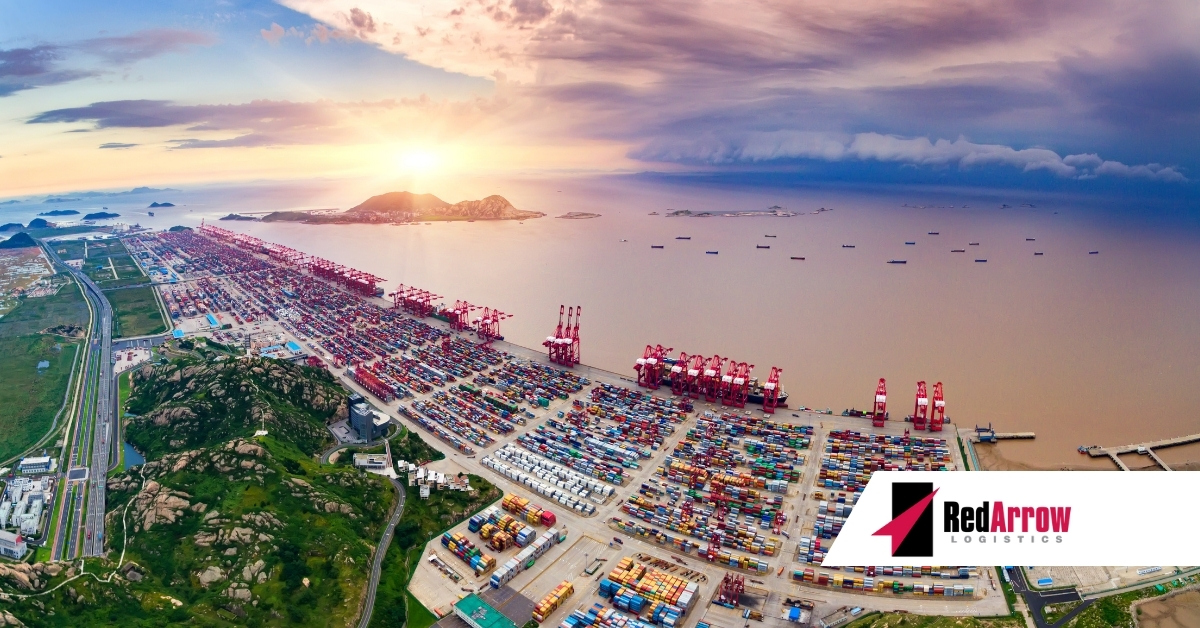Shanghai authorities are facing major challenges in keeping supply chains going with numerous ongoing COVID-19 lockdowns. For over a month, China’s most populous city has been imposing strict lockdowns in which residents are unable to leave their homes. China’s effort to keep the latest round of the virus under control has led to rigid quarantine measures in which workers are unable to process incoming and outgoing shipping containers.
Shanghai is a production base for many companies including Tesla, Inc. Hundreds of businesses are not able to resume production because of a lack of workers at the manufacturers and suppliers, while there is a lack of inbound and outbound truckers. The movement of people and goods around the country is at a standstill in areas with lockdowns.
Closed-Loop Has Its Challenges
Businesses with a closed-loop management strategy, where workers live on-site and are tested regularly, may also be forced to stop production due to shortages of parts and raw materials. Maximilian Butek, chief representative at the Delegation of German Industry and Commerce in Shanghai said, “A few companies are running in closed-loop production now. Those companies are facing challenges and may shut down very soon due to the lack of logistics and workers. Their workers for closed-loop production have been working for more than three weeks and need to be replaced.”
Chinese officials have been encouraging businesses to restart output by utilizing closed-loop systems where the workers live at the factory. Tesla Inc, and Quanta Computer Inc, which makes laptops for Apple Inc., have restarted their operations but have run into many issues. Tesla’s inventory is only enough to last for two weeks based on the new schedule, and Volkswagen AG Shanghai does not have enough of the auto parts needed to make a complete car.
Pile Up at the Airport
At the Shanghai Pudong International Airport, cargo deliveries are backed up due to lockdowns and a shortage of workers. Since there are not enough trucks to pick up the shipments that have been delivered, goods are on standby. An increasing number of shipments are accumulating at the warehouses, which are running out of space to store all the shipments. Health requirements that are imposed locally mean that truck drivers have to abide by several different policies and are subject to multiple COVID tests as they cross provinces. Even though the government has instructed the highways to be kept open with no COVID testing checkpoints, other logistics issues are now causing delays.
The supply chain and logistics issues are not just limited to Shanghai. Companies in the Yangtze River Delta area and Beijing are also experiencing problems because of the different rules imposed by different cities. Technical staff that maintains machinery in other parts of China have not been able to commute or travel.
The Fall-Out
Lockdown measures throughout China are affecting global supply chains as shipments pile up at ports and warehouses. As a result, retail and e-commerce customers might have to find other sources if the situation in China does not resolve soon. The U.S. relies on China for electronics, furniture, apparel, and raw materials which will drive up the prices for these products and by-products even more. For example, the price of used cars and trucks in the U.S. has increased 35 percent over the last year as semiconductor shortages slowed production.
Diana Furchtgott-Roth, adjunct professor of economics at George Washington University, states “There’s one- or two- or three- week delays for disruption of exports, and then there’s also a one-week quarantine for goods to enter China. So that means that big manufacturers that use suppliers from elsewhere, such as chips for South Korea, are finding that their operations are disrupted too.”
This situation is having an impact on higher prices for other goods as well. There are four main ways supply issues in China force companies to charge higher prices: lost sales from seasonal or perishable items that were delayed; lower revenue from late deliveries; the need to hold larger inventories; and the costs of preparing unfilled or cancelled orders.
These strict measures by China to eradicate COVID-19 completely are putting even more inflationary pressure on the price of goods in the U.S. At the same time, global shortages on goods will remain as shutdowns delay both production and transportation.
Your Trusted Partner
At Red Arrow Logistics, we provide expertise and white glove customer service with fast-growing, complex, and high-value supply chains. As the next-generation model of logistics companies, we offer tailored transportation and logistics solutions — from single shipments to complex over-dimensional and international orders.
Red Arrow offers the scale and scope of services including air, ocean, and ground transportation to meet the budget and schedule requirements of the largest and smallest companies alike. If we can be of assistance, please email us at info@redarrowlogistics.com or give us a call at 425-747-7914.





